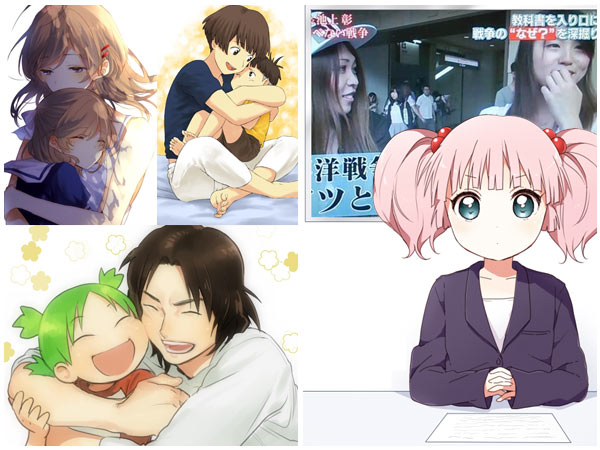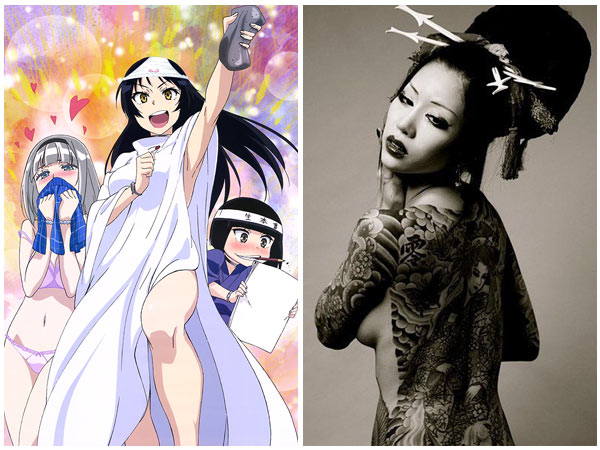I’ve always done my best to observe the Japanese people during my time here, so I can pass those observations on to all of you. Japanese people aren’t generally fans of spicy food, and whenever my wife goes to South Korea she knows to bring me back proper spicy kimchee (Korean pickled cabbage) since the varieties sold in Japan aren’t hot enough for me. When Japanese drink, their faces often turn bright red after only a drink or two, due to a problem many have metabolizing alcohol called Asian Flush Syndrome. Japanese almost never show affection in front of others, and the idea of hugging a family member is quite rare in daily life here…though my American daughter apparently never learned this rule, and in elementary school would eagerly hug her mother at school events despite my wife’s embarrassment.
Younger Japanese also sometimes lack what we might consider an acceptable level of knowledge of their own history, a fact that rubs Japan’s neighbors the wrong way sometimes. As part of the 70th anniversary of the end of World War II, a TV news program asked young people to name the second country that was allied with Japan after Germany, but the responders didn’t know the correct answer, some saying “Great Britain” and even “the United States.” In their defense, Italy was kind of unimportant in the wider conflict as seen from the Pacific, and they changed sides in 1943, but still, you’d hope that anyone who had completed their country’s compulsory education system would have a basic working knowledge of their own recent history.
Another issue is the nature of the program, which naturally wanted interesting answers to make the show fun to watch. 98% of respondents could have correctly replied “Italy” but they presumably wouldn’t have made it on the show, which cherry-picked which responses we got to see, something called ヤラセ yarase or faked news. This, along with the tendency to self-censor certain subjects (a demonstration against the government’s handling of the recovery in Fukushima, for example) have made many Japanese mistrustful of the mass-komi, as the news media is called in Japanese (from “mass communications”), which is cynically referred to as mass-gomi (“mass garbage”). Interestingly, translations of news articles from Yahoo News or MSNBC sometimes provide the only mainstream reporting Japanese can get on some topics, like when Google accidentally published maps that showed the regions where Japan’s “untouchables” lived back in the Edo Period, which is still a delicate subject today.
Every year J-List makes gorgeous traditional photo, bento and sushi, kimono, art and awesome anime calendars from Japan available to our customers around the world, and we’re happy to announce that the first batch of calendars are on the site now, ready to be ordered. Today we added even more 2016 calendars, including the upcoming offerings by Kantoku, Coffee Kizoku, and the Totoro and Jiji the Cat desktop calendars, which are always a treat. (The bulk of anime-related calendars will be posted soon.) This year we’re an “Earlybird Special” on all calendars. Preorder two or more calendars before Sept 30 and get our early bird special of 20% off your purchase, which will go away after October 1st.

















